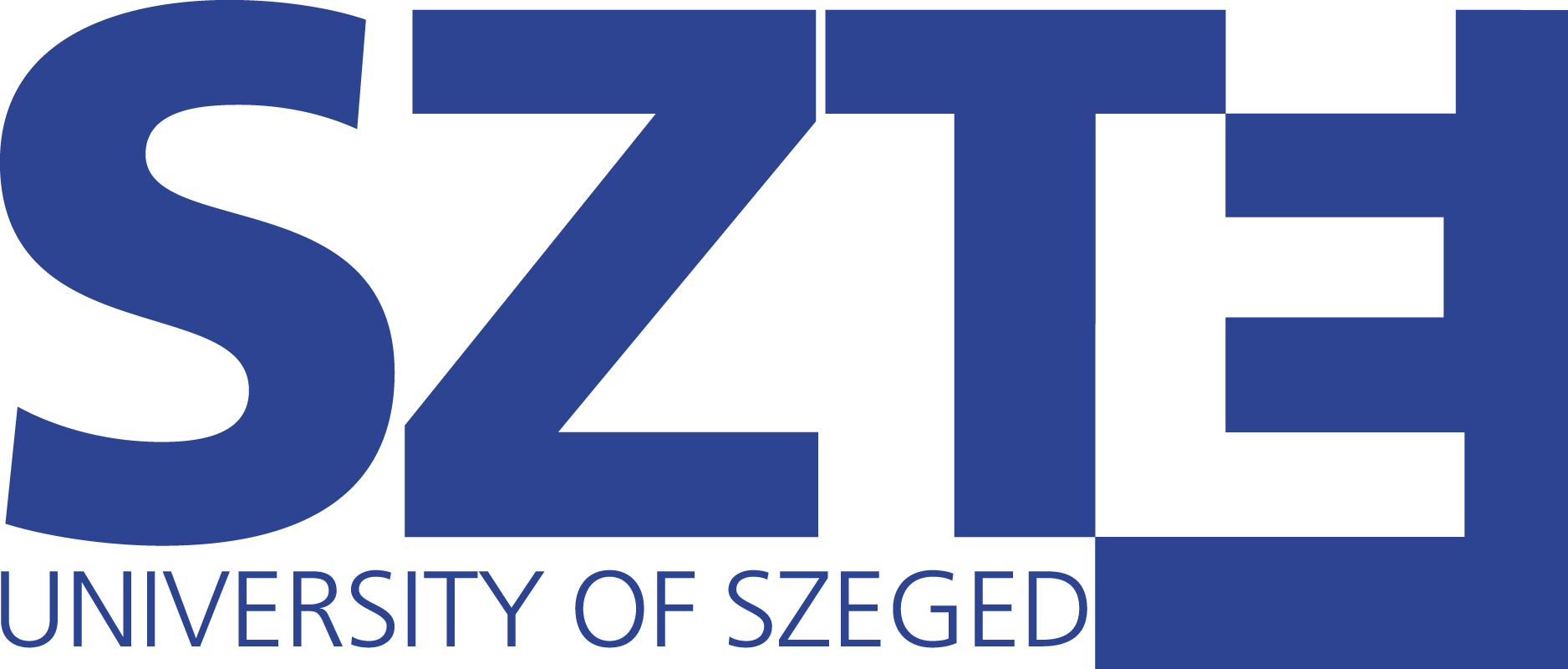
Pharmaceutical sciences face both enduring and emerging challenges. Pharmacists must tackle the most obscure misconceptions while staying abreast of the latest discoveries, all without losing sight of their primary focus: patient care. In what direction does a university faculty responsible for training pharmacists advance amidst such diverse influences? We spoke with Prof. Dr. Zsolt Szakonyi, who has been serving as Dean of the Faculty of Pharmacy at the University of Szeged since July.
Q: Pharmaceutical studies are among the traditional fields of study at the University of Szeged. At the same time, the profession is forced to deal with entirely new challenges, both in scientific advancements and in addressing patient needs. As the new dean of the faculty, how do you perceive this duality?
A: Pharmaceutical education has been an integral part of the University of Szeged’s academic offerings since its inception and has been organized under an independent faculty since 1957. Its traditions are rooted in the practice of preparing medicines, a legacy we are proud to uphold. However, the profession has evolved, necessitating the integration of new competencies into our curriculum to ensure that students are equipped with a degree that offers a competitive edge.
Patient care has become an increasingly important responsibility for today’s pharmacists. Community forums reveal the significant gaps that need to be addressed in people’s understanding of medications. Beyond the traditional roles of preparing and dispensing medicines, one of the core duties in our profession now is to support patients, dispel misconceptions, and raise awareness about the risks of improper medication use.
In recent decades, the profession has undergone substantial changes, leading to the emergence of entirely new directions, particularly in clinical pharmacy and pharmaceutical technology development. In the past, clinical pharmacists were primarily responsible for ensuring the supply of medications to hospital departments. Today, they are vital members of the healthcare team, participating in morning consultations with doctors and head nurses. They contribute to decisions regarding therapies, oversee follow-up care, and play an active role in organizing hospital treatments.
Clinical pharmacy has evolved into an almost independent scientific discipline. Beyond its therapeutic importance, it plays a crucial economic role as well. The cost-efficiency of hospital operations is heavily influenced by the therapeutic guidelines endorsed by clinical pharmacy, decisions on medication use, drug availability, recent drug developments, and treatment alternatives offered to physicians.
Meanwhile, drug development has also been transformed by emerging technologies, requiring pharmacists to acquire new competencies. Nanotechnology, for instance, has opened up entirely new opportunities for drug formulation and therapy. Developing these innovations is the responsibility of pharmacists, whether in industry, clinical settings, or research institutions.
Q: In your view, what responsibilities does a pharmacist have towards the patient beyond merely dispensing their medication?
A: The pharmacist’s oath itself states that patients must be approached with a helping attitude. Enough time needs to be taken to provide people with reliable information because the pharmacist serves as the final checkpoint, responsible for ensuring what medication is dispensed and to whom. Indeed, with their knowledge of the medications being dispensed, pharmacists are often able to understand why a patient might appear anxious or unsettled during their visit to the pharmacy. For instance, when someone buys a narcotic painkiller at the pharmacy, the pharmacist can often infer that a family member is undergoing cancer treatment. In many cases, the dosage may even indicate to the professional that the patient is in the terminal stage of the illness. This underscores the importance of the pharmacist treating the family member with genuine empathy and understanding.
The empathy and care provided by pharmacists are noble and indispensable aspects of our profession. This is not just rhetoric: our programs at the faculty include dedicated lectures on developing communication skills and pharmaceutical care skills to address these vital areas. Unfortunately, pharmacists often lack sufficient time in their daily practice to properly educate patients. Still, teaching responsible self-care remains a critical responsibility, as without proper guidance, patient self-care can easily backfire.
Our parents often relied on remedies passed down through word of mouth, which was relatively harmless compared to the current trend of young people turning to the internet to find therapies for themselves. This carries significant risks, as the online world is filled with unreliable, unchecked information and self-proclaimed healers. It is alarmingly easy to come across groups promoting various so-called ‘therapies’, which can result in serious health problems. That’s why we, as pharmacists, must actively seek opportunities to educate the public – whether through forums, educational lectures, articles, media programs, or blogs.

Q: Few fields of science have as many intersections with other disciplines as pharmaceutical research. How is this interdisciplinary approach reflected in the training provided by the Faculty of Pharmacy?
A: It is crucial for pharmacists to look beyond their narrow field of research. The Hungarian word for pharmacist (gyógyszerész) beautifully encapsulates this broader vision, referring to someone with a deep, multifaceted understanding of all aspects of medicines.
The research, production, analysis, efficacy testing, formulation, and clinical application of medicines, along with the evaluation of these processes and even the marketing of pharmaceutical products, intersect with numerous scientific disciplines. Indeed, all these areas fall within the pharmacist’s domain of expertise. However, the vast scope of this knowledge makes it impossible for a single individual to master everything, which is why specialization has become essential. For this reason, we encourage our students to identify their areas of interest early in their studies.
Although pharmacy training is structured as a one-tier, undivided program, students can start narrowing their focus during their final one or two years by selecting courses aligned with their chosen specialization. For instance, for those interested in pharmacology or drug efficacy research, we recommend taking courses closely related to these fields. Similarly, students drawn to clinical pharmacy should begin by selecting specialized subjects that steer them toward this field. In just 3-4 years, through specialized training or doctoral studies, students can become experts in a particular field.
Thanks to the comprehensive nature of training, the degree awarded by the Faculty of Pharmacy is highly valued in the job market. Graduates are well-equipped to pursue careers across a range of sectors, including healthcare, pharmaceutical manufacturing, the cosmetics industry, and even public administration.
Q: At the recent mRNA Conference in Szeged, several speakers highlighted the growing focus on personalized therapies in drug research. Does this signal a shift in the fundamental approach to pharmaceutical research?
A: The focus of drug research is undergoing a profound shift. Traditional small-molecule chemical research, which has historically concentrated on compounds with molecular weights ranging from 100 to 500, is gradually declining. In its place, the study of medium- and large-molecule systems, as well as biological systems, is gaining prominence. Most conventional medications – such as aspirin, many cancer therapies, and the majority of anti-inflammatory and fever-reducing drugs – are derived from small molecules. While the early days of drug discovery were heavily centered on these smaller compounds, the emergence of peptide chemistry in the 1950s and milestones such as insulin and antibiotic production significantly broadened the scope of pharmaceutical research to include medium- and large-molecule exploration.
Classified under nucleoside compounds, newly developed mRNA-based active ingredients are a prime example of the shift in pharmaceutical development. Personalized therapy is also gaining increasing importance, particularly in the treatment of cancer and viral diseases. These cutting-edge development processes demand not only specialized expertise but also collaborative research teams equipped with state-of-the-art infrastructure. It is also important to note that drug development encompasses multiple stages, from synthesizing core molecules to creating a formulation suitable for patient use. For example, in the case of mRNA-based therapeutic vaccines, synthesizing the active ingredient was only the first step; it also required careful formulation and packaging to ensure accurate delivery to its intended target.
Q: In September, the faculty launched a Hungarian-language MSc program in pharmaceutical research management. What prompted this decision?
A: Industrial partners have expressed a strong demand for pharmacists capable of effectively managing research projects within their organizations. The faculty’s instructors possess the expertise required to address this need. Additionally, this training program is further enriched by contributions from external experts, including specialists from our industrial partners and the clinical sector. Indeed, we clearly see that leading pharmaceutical companies and clinical training centers in Hungary are actively seeking professionals with a management-oriented approach – which is what essentially motivated us to introduce this new program along with its specialized courses.
Q: Let’s shift our focus to the development of the Faculty of Pharmacy. It is undeniably impressive that the faculty ranked within the 231st to 250th range globally in the 2024 spring QS World University Rankings. What further developments are planned?
A: This ranking reflects the extensive research and teaching efforts at our faculty. We boast an exceptionally well-qualified teaching staff, with 95% holding advanced academic degrees, having at least a PhD. Over half of our teaching staff have habilitation qualifications, with nine holding Doctor of Sciences degrees and ten serving as full professors. This represents considerable academic and research potential, which we are committed to preserving and fostering. Notably, the Faculty of Pharmacy has one of the highest averages of scientific publications per member across all faculties at the University of Szeged. Furthermore, we have a well-established doctoral school with 80 PhD students and highly motivated supervisors.
The English-language pharmacy program was launched at the faculty in 1986-87. Currently, approximately 110 students are enrolled in the undergraduate program, while 40 students participate in the doctoral postgraduate program. This year, we set the goal of further developing our international training. To achieve this, we joined the university’s existing Study International recruitment platform and identified 12 target countries from which we aim to attract fee-paying students for the English-language program.
We are also collaborating with a French partner company to attract students from France to our English-language program. In France, state-funded education, including pharmacy programs, is free. However, universities often dismiss half of the large number of admitted students after the first year. We provide an opportunity for those who wish to continue their studies by offering a moderately priced pharmacy program in a reliable EU country with significantly lower dropout rates. Our aim is to establish a stable group of approximately 40 English-speaking students who will carry our reputation to the global stage. A prime example of this is Professor Sami Ahmed Khalid, a pharmacognosy professor at Sudan University of Science and Technology, who was awarded an honorary doctorate at this year’s University Day event in Szeged. He graduated in 1972 from the Hungarian-language program in Szeged; and he has a Hungarian wife and a child who is fluent in Hungarian. He maintains excellent ties with our faculty, showcasing the strong connections fostered through our programs.

Q: What would you say to briefly describe the faculty to an international student?
A: I would say that our faculty is deeply dedicated to science, offering a modern, knowledge-based learning experience. Our degree provides highly applicable expertise in all areas of pharmacy and pharmaceutical research, making it valuable worldwide. At the same time, our program is exceptionally student-focused, with instructors cultivating close, practically personalized connections with students. We prioritize student feedback and closely monitor each student’s academic journey at the university. In short, we strive to create an environment that truly embodies an international and welcoming atmosphere.
Q: Reviewing online forums and student feedback about the Faculty of Pharmacy, it seems that comments align with much of what you shared. However, some students point out that the first year, especially in subjects like math and physiology, is particularly challenging, resulting in a notable number of dropouts. Is that accurate?
A: We revised the curriculum two years ago in collaboration with other pharmacy faculties in Hungary. We started from the premise that foundational subjects taught by partner faculties should be concentrated within the first two years of study. Subjects like mathematics, physics, physical chemistry, biology, and medical sciences are taught at the Faculty of Science and Informatics (TTIK) and the Faculty of Medicine (SZAOK) – and it is true that they can be quite challenging at the outset. One contributing factor to the problem may be the significant decline in the quality of science education in high schools over recent years, making it increasingly difficult to recruit adequately prepared students.
Until now, our primary admissions focus has been on biology and chemistry, without placing much emphasis on applicants’ mathematical skills. This is changing, however, as the faculty leadership decided in recent years to broaden admission criteria to include advanced-level high school graduation exams in mathematics, as well as healthcare and chemical engineering qualifications. For students who face difficulties, we aim to introduce remedial courses to help them catch up, which, in turn, reduces dropout rates.
From the third year onward, students primarily study within the Faculty of Pharmacy itself, allowing us to provide even closer support. Naturally, we cannot lower our expectations at any stage, as the demands placed on pharmacists remain high.
Q: Pharmacy students value the central location of the Faculty’s main building, but is it adequately equipped to address the demands posed by new challenges?
A: In the long term, constructing a new faculty building would be the ideal solution, as the current facility no longer meets the growing demands, particularly in terms of research and development activities. For example, it is no longer feasible to obtain permits for installing advanced technological development production lines here. In the short term, however, the planned expansion projects over the next 5–10 years should sufficiently address the needs for educational development.
The stable financial foundation provided by international student enrolments will play a key role in driving the Faculty’s renewal efforts. This year, we’ve launched several renovation projects: new classrooms are being built in the basement of the main building, while at the Szentháromság Street campus, we plan to expand our facilities by adding a new unit to the Institute of Behavioral Sciences at the Faculty of Medicine. This new unit will house a training pharmacy as well as seminar rooms. We have also secured approval to establish new laboratories in the biological sciences building located in Újszeged.
Original Hungarian text by Sándor Panek
Photos by Ádám Kovács-Jerney

